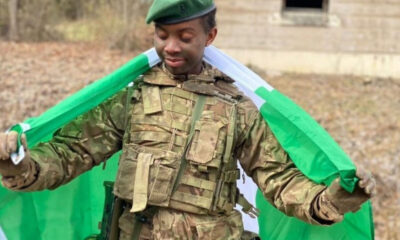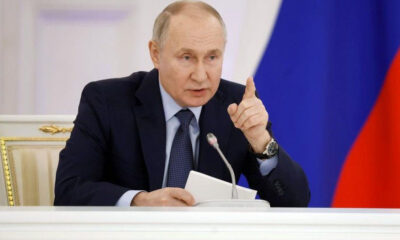International
UK faces ‘recession risks’ as interest rates bite
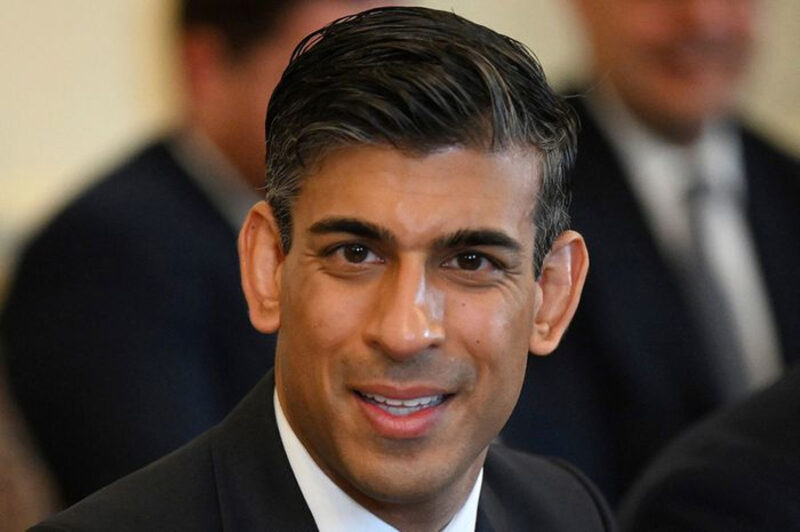
UK faces ‘recession risks’ as interest rates bite
The UK economy is on course to shrink in the three months to the end of September and could tip into recession, a closely-watched survey suggests.
The S&P Global/CIPS UK purchasing managers’ index found rising interest rates and weaker household spending contributed to a sharp drop in demand for goods and services in August.
The index fell to 47.9 in August – its lowest level in two and half years – down from 50.8 in July.
Anything below 50 marks a contraction.
Economists suggested that PMI figures, which are a measure of the health of the economy, showed that the Bank of England’s efforts to tame inflation – the rate at which prices rise – were beginning to work.
After the report, the pound fell and City analysts lowered their expectations of where the Bank’s interest levels would peak to 5.5% from 6%. Rates currently stand at 5.25%, up from close to zero in late 2021.
However, Chris Williamson, chief business economist at S&P Global Market Intelligence, said the figures also suggested “the fight against inflation is carrying a heavy cost in terms of heightened recession risks”.
“A renewed contraction of the economy already looks inevitable, as an increasingly severe manufacturing downturn is accompanied by a further faltering of the service sector’s spring revival,” he said.
According to official figures, UK inflation was 6.4% in July which, although slower than the previous month, is still near record levels and much higher than the government’s aim of 2%.
In response the Bank has put up interest rates 14 times since 2021, hoping that by making it more expensive to borrow money, consumer demand will cool and price rises will slow.
However, repeated interest rate rises tend to drag on economic growth as it becomes more expensive for consumers and businesses to borrow and spend.
Paul Dales, economist at Capital Economics, said the survey would encourage the Bank “that higher rates are working” but added that economic would soon contract and a “mild recession is on the way”.
According to the PMIs, both the UK activity fell in both the manufacturing and services sectors in August.
Rhys Herbert, a senior economist at Lloyds Bank, added that “the sharper-than-expected drop in retail sales in July” was also a warning of “further possible weakness as we enter autumn”.
“Some businesses continue to also experience challenges with recruitment, resulting in upward pressure on wages,” Mr Herbert added.
Pay has been rising at a record rate but the Bank of England has warned that wage increases will make it harder to get inflation down.
UK faces ‘recession risks’ as interest rates bite
International
Gaza: Thousands rally for hostage deal as ceasefire talks continue

Gaza: Thousands rally for hostage deal as ceasefire talks continue
Tens of thousands of Israelis rallied late into the night calling for a deal to bring hostages home, ahead of further ceasefire talks.
Protesters in Tel Aviv chanted “war is not holy, life is”, with some accusing Prime Minister Benjamin Netanyahu of aiming to prolong the conflict.
It came as a Hamas delegation met mediators in Egypt on Saturday.
The group said there were no new developments, but added “a new round will begin” on Sunday.
Negotiators have resumed long-running negotiations in Cairo – brokered by Egypt and Qatar – on pausing Israel’s offensive in Gaza in return for freeing hostages.
The main sticking point appears to be whether the deal would be temporary or permanent.
It is thought the wording being discussed involves a 40-day pause in fighting while hostages are released, and the release of a number of Palestinian prisoners being held in Israeli jails.
An adviser to the Hamas leader, Ismail Haniyeh, said the group was looking at the latest proposal with “full seriousness”.
READ ALSO:
- Ronaldo’s hat-trick leads Al Nassr to a 6-0 Victory over Al Wehda
- Nigeria to reduce electricity supply to Niger Republic, Benin, Togo
- Edo, Delta areas to experience two-week power outage – TCN
But he repeated a demand that any deal would have to explicitly include an Israeli withdrawal from Gaza and complete end to the war.
An anonymous Israeli government official told local media on Saturday that Israel would “under no circumstances agree to end the war as part of an agreement to free our abductees”.
They added: “The IDF will enter Rafah and destroy the remaining Hamas battalions there – whether there is a temporary pause to free our captives or not.”
Mr Netanyahu has faced pressure from within his far-right coalition to press ahead with the long-promised offensive in Gaza’s southern-most city, where an estimated 1.4 million people have taken shelter after fleeing fighting in northern and central parts of the strip.
The US – Israel’s biggest diplomatic and military ally – is reluctant to back a new offensive that could cause significant civilian casualties, and has insisted on seeing a plan to protect displaced Palestinians first.
Saturday’s demonstrations in Israel were the latest display of the increased domestic pressure Mr Netanyahu is facing to secure the return of the hostages.
Of the 252 who were kidnapped by Hamas on 7 October, 128 are still unaccounted for – and among them, at least 34 are presumed dead.
Natalie Eldor, a protester in Tel Aviv, told Reuters news agency she was there to “support a deal now, yesterday”.
“We need to bring all the hostages back, the live ones, the dead ones. We got to bring them back. We got to switch this government,” she added.
READ ALSO:
- Coastal highway project to disrupt DStv, GOtv services
- Former Minister of Education Gbagi dies at 62
- Russia adds Zelensky to ‘wanted’ list of criminals
Some who gathered at the Kirya military base in Tel Aviv accused the prime minister of undermining the proposed truce, while others called for an end to the war.
Addressing the prospects of a truce on Saturday, minister Benny Gantz, a member of Israel’s war cabinet, said: “An official response to the outline has not yet been received. When accepted – the war management cabinet will meet and discuss it.
“Until then, I suggest to the ‘political sources’ and all decision-makers to wait for official updates, to act calmly and not to get into hysteria for political reasons.”
Ceasefire talks have gone on for months without a breakthrough, and there has not been a pause in fighting or a release of hostages since the end of November.
There have been moments at which a new agreement has seemed imminent – only to fall through before being signed.
A source familiar with this latest round of discussions told the BBC that the negotiations were still complex, and any breakthrough could still take several days.
Meanwhile, the head of the United Nations’ World Food Programme has warned that northern Gaza is now experiencing a “full-blown famine”.
Cindy McCain warned the catastrophic situation in the territory was spreading south in an interview with US media.
“What we are asking for and what we’ve continually asked for is a ceasefire and the ability to have unfettered access to get in safe,” Ms McCain said.
The war began after waves of Hamas gunmen stormed across Gaza’s border into Israel on 7 October, killing about 1,200 people and taking more than 250 hostages. The group is proscribed as a terrorist organisation by many Western countries.
During the subsequent Israeli military campaign in Gaza, more than 34,600 Palestinians have been killed and over 77,900 wounded, according to figures from the territory’s Hamas-run health ministry.
Gaza: Thousands rally for hostage deal as ceasefire talks continue
International
Russia adds Zelensky to ‘wanted’ list of criminals

Russia adds Zelensky to ‘wanted’ list of criminals
Russia has added Ukrainian President Volodymyr Zelensky to its list of wanted criminals, which Kyiv has described as proof of Moscow’s “desperation.”.
Zelensky’s name surfaced on Saturday on the Russian interior ministry’s “wanted” list, which is an internet database of alleged criminals wanted by Russian authorities.
It stated that the Ukrainian leader was wanted “under an article of the criminal code” but did not provide any further information.
Russian officials made no quick remark on why Zelensky had been put on the list.
According to Ukraine’s foreign ministry, the decision demonstrates “the desperation of the Russian state machine and propaganda, which are at a loss for what else to invent to garner attention.”.
Moscow has targeted Zelensky since February 2022, when Russia launched its military intervention in Ukraine.
READ ALSO:
- Iheanacho eyes Aston Villa, turns down Leicester’s £65k weekly offer
- 1966 coup: Ohanaeze denies apology to Fulani
- Real Madrid win 36th La Liga title as Girona beat Barcelona
Last year, the Ukrainian president stated that he was aware of at least “five or six” unsuccessful assassination attempts on his life.
The day after sending troops into Ukraine, Russian President Vladimir Putin addressed the nation, urging the Ukrainian army to depose Zelensky.
Russia has added several international politicians and popular figures to its wanted list, which includes tens of thousands of names.
International
In Texas, pro-Palestine university protesters clash with state leaders
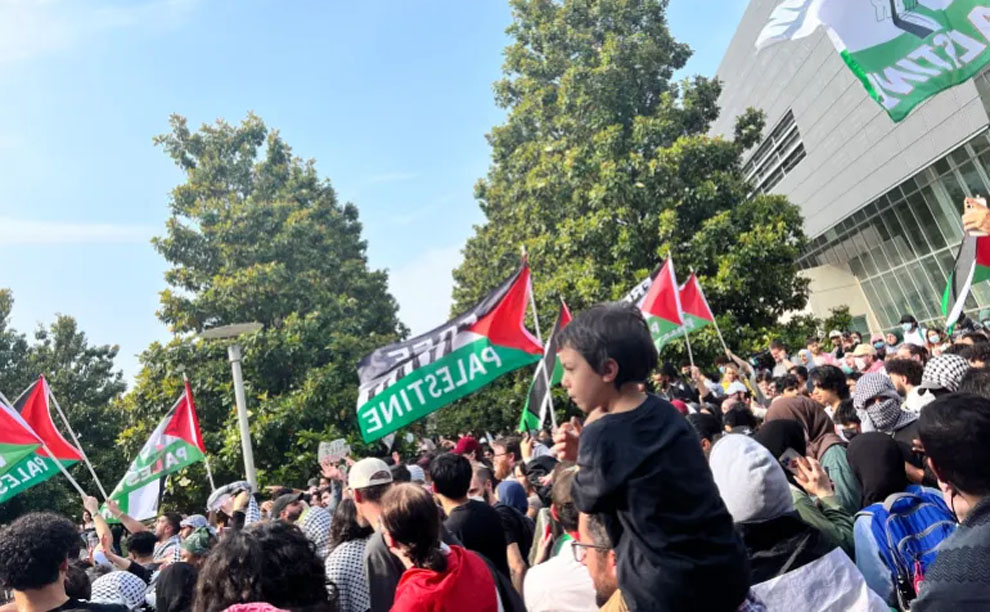
In Texas, pro-Palestine university protesters clash with state leaders
Austin, Texas – “It didn’t feel real.” That’s how Alishba Javaid, a student at the University of Texas at Austin, describes the moment when she saw roughly 30 state troopers walk onto the campus lawn.
Javaid and hundreds of her classmates had gathered on the grass, in the shadow of the campus’s 94-metre limestone tower, as part of a walkout against Israel’s war in Gaza.
They were hoping that their school would divest from manufacturers supplying weapons to Israel. Instead, law enforcement started to appear in increasing numbers.
By Javaid’s count, the state troopers joined at least 50 fellow officers already in place, all dressed in riot gear. The protest had been peaceful, but nerves were at a high. The troopers continued their advance.
“That was the first moment I was genuinely scared,” said Javaid, 22.
Dozens of students were ultimately arrested on April 24, as the officers attempted to disperse the protesters. Footage of the clashes between police and demonstrators quickly spread online, echoing images from other campus protests across the United States.
Yet, Texans face a unique challenge, as they contend with a far-right state government that has sought to limit protests against Israel.
READ ALSO:
- Palestinian doctor dies in Israeli prison
- Ganduje shares cash to 400 PWDs
- Police arrest four ex-convicts for robbery in Niger
In 2017, Governor Greg Abbott signed a law that prohibits government entities from working with businesses that boycott Israel, and the state has since taken steps to tighten that law further.
Abbott has also cast the current protests as “hate-filled” and “anti-Semitic”, amplifying misconceptions about demonstrators and their goals.
In addition, a state law went into effect earlier this year that forced public universities to shutter their diversity, equity and inclusion (DEI) offices.
Multiple students and employees told Al Jazeera that campuses have become less safe for people of colour as a result of the law, which forced the departure of staff DEI advocates.
‘Using violence to subvert minorities’
The violence has continued at University of Texas campuses as students press forward with their protests.
On the final day of class, April 29, police used pepper spray and flash-bang devices to clear a crowd at the Austin campus, while dozens more were encircled by troopers and dragged away screaming.
Hiba Faruqi, a 21-year-old student, said her knee “just kept bleeding” after she was knocked over during a pushing-and-shoving match between students and police.
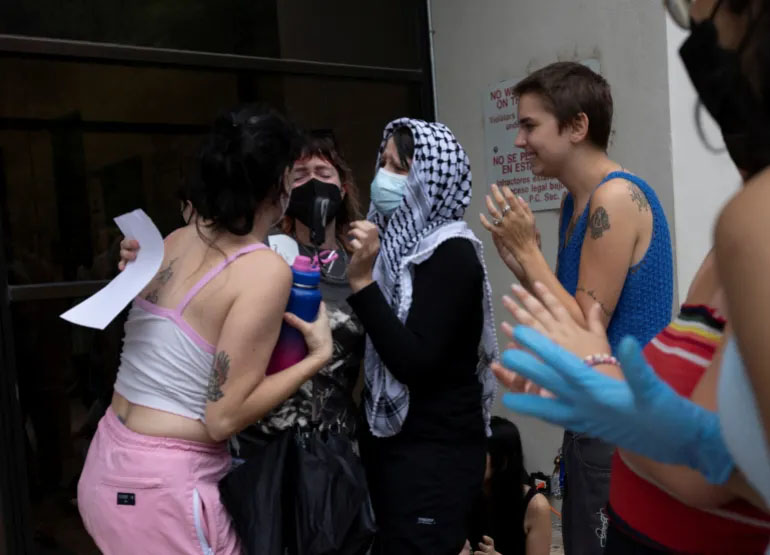
Student protesters applaud one another as they are released from the Travis County Jail in Austin, Texas, on April 30 [Nuri Vallbona/Reuters]
Yet she counts herself lucky for not sustaining worse injuries. It was surreal, she said, to think that her own university called in state troopers — and then had to deploy medical personnel to assist students who were hurt.
“There’s a racist element people don’t want to talk about here,” she said. “There’s a xenophobic element people don’t want to acknowledge. There are more brown protesters, which maybe emboldens the police to do things a certain way.”
As calls for divestment continue, students, lawyers and advocates told Al Jazeera they have been forced to navigate scepticism and outright hostility from the Texas government.
READ ALSO:
- US congressman, wife charged with $600,000 bribe tied to Azerbaijan, Mexican bank
- Don’t host US, French military bases in Nigeria, northern leaders warn Tinubu
- Osun kingship Tussle: Court stops coronation of Gov Adeleke-appointed king
“Texas is known for using violence to subvert minorities,” Faruqi said. “The reason this is shaking people this time is because it’s not working.”
Scrutiny over university endowments
Many of the protests have zeroed in on the University of Texas’s endowment, a bank of funds designed to support its nine campuses over the long term.
The University of Texas system has the largest public education endowment in the country, worth more than $40bn.
Some of that money comes from investments in weapons and defence contractors, as well as aerospace, energy and defence technology companies with deep ties to Israel.
ExxonMobil, for example, is one of the biggest beneficiaries of the system’s investments, and the company has supplied Israel with fuel for its fighter jets.
Those ties have fuelled the protests across the state’s public university campuses, including a May 1 demonstration at the University of Texas at Dallas.
Fatima — who only shared her first name with Al Jazeera, out of fear for her safety — was among the demonstrators. She wiped sweat from her brow as a young child led the crowd of about 100 in a series of chants: “Free, free, free Palestine!”
The divestment protests have largely been peaceful, Fatima explained, raising her voice to be heard above the noise.
“Over 30,000 people have been murdered,” she said, referring to the death toll in Gaza, where Israel’s military campaign is entering its eighth month.
“And our university is investing in weapons manufacturing companies that are providing Israel with these weapons. We’re going to stay here until our demands are met.”
Twenty-one students and staff members were arrested that day in Dallas. Members of the group Students for Justice in Palestine, of which Fatima is a member, spent the night outside the county jail, waiting for their friends to be released.

One protester wryly noted outside the jail that they had been arrested for trespassing on their own campus, a seemingly nonsensical offence.
READ ALSO:
- We have added 625MW to national grid – Minister
- Minimum wage, maximum deceit and moral cowardice – Farooq Kperogi
- EFCC nabs 20 suspected internet fraudsters in Sapele
- Nigerian pastor under fire over porn-addiction remedy
In the background, a thunderstorm was beginning to rear its head, so the protesters huddled closer together under the awning.
Protesters receive community support
Texas officials and university administrators have justified the police crackdowns, in part, by citing the presence of outsiders with no present affiliation with the campuses involved.
But 30-year-old activist Anissa Jaqaman is among those visiting the university protests, in an effort to lend supplies and support.
Everyone has a role to play, Jaqaman explained: Her role is sometimes that of the communicator, but more often that of the healer.
She has brought water to the student demonstrators at the University of Texas at Dallas and hopes to provide a space for people to “come over and talk about how we heal”.
“This is a healing movement,” she said time and again as she spoke to Al Jazeera. “We have to carry each other.”
Jaqaman is Texas through and through: She was raised in the Dallas suburbs and is a strong advocate for her state.
“I’m a proud Texan,” she said. “I actually think that Texans are some of the nicest people in the country.”
But back when she was in college, from 2012 to 2016, Jaqaman started to use her voice to bring awareness to the plight of Palestinians.
Rights groups have long warned that Israel has imposed a system of apartheid against the ethnic group, subjecting its members to discrimination and displacement.
In college, Jaqaman’s friends often laughed at her passion. She often smiles, exuding optimism, but her voice grows serious as she talks about Palestine, as well as other issues like the scourge of single-use plastics.
“They just thought I was a tree-hugger, but for human rights,” she explained, speaking in a soft yet confident voice.
But the current war has amplified her concerns. The United Nations has signalled famine is “imminent” in parts of Gaza, and rights experts have pointed to a “risk of genocide” in the Palestinian enclave.
Jaqaman has sported her keffiyeh scarf ever since the war began on October 7, despite feeling anxious that it could attract violence against her.
“I wear it because I feel like it protects my heart, honestly,” she said. “I feel like I’m doing the Palestinian people injustice by not wearing it.”
But she has struggled to get public officials to engage with her concerns about the war and divestment from industries tied to Israel’s military. For months, she attempted to persuade her local city council that “this is a human issue, an everyone issue”, to little avail.
“Everything that we’re seeing right now is about shutting down the discussion,” she said. “If you say anything about Palestine, you’re labelled anti-Semitic. That’s a conversation-ender.”
Youth protesters look to the future
Students like Javaid, a journalism major in her final semester, told Al Jazeera that they are still trying to figure out what healing looks like — and what their futures might hold. In many ways, she and her friends feel stuck.
They recognise they need to take a break from scouring social media for information about the war, and yet it is all they can think about.
The usual college rites of passage — final exams, graduation and job hunting — just don’t seem as important any more.
“How are we supposed to go back to work now?” Javaid asked after the protests.
While she has treasured her time at the university, she is also highly critical of its actions to stamp out the protests. Part of the blame, she added, lies with the government, though.
“The root issue in Texas is that the state government doesn’t care,” she said.
Born and raised in the Dallas area, Javaid plans to stay in Texas for at least a little while after she graduates this month. She has mixed feelings about staying long term, though.
She would like to work in social justice, particularly in higher education, but she worries such a job would be tenuous in her home state.
Still, she feels a sense of responsibility tying her to the state. The political climate in Texas may be challenging, she said, but she has a duty — to her fellow protesters and to Palestine — to keep playing a role.
“I don’t want to jump ship and just say, ‘Texas is crazy’,” Javaid said. “I want to be a part of the people trying to make it better. Because if not us, who?”
In Texas, pro-Palestine university protesters clash with state leaders
SOURCE: AL JAZEERA
-
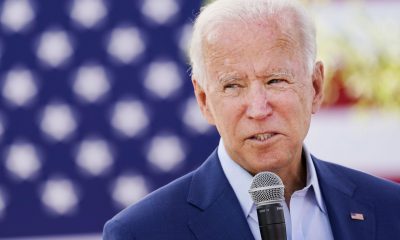
 International2 days ago
International2 days agoUS students slam Biden’s comments on Gaza encampments
-

 metro3 days ago
metro3 days agoIPOB declares sit-at-home May 30 to honour Biafra heroes
-

 News1 day ago
News1 day agoDon’t host US, French military bases in Nigeria, northern leaders warn Tinubu
-
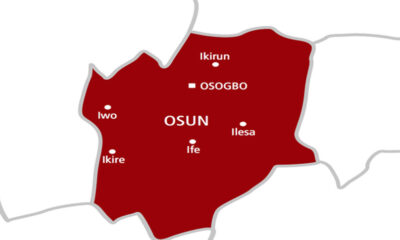
 News2 days ago
News2 days agoGroup protests alleged imposition of Imam in Osun
-
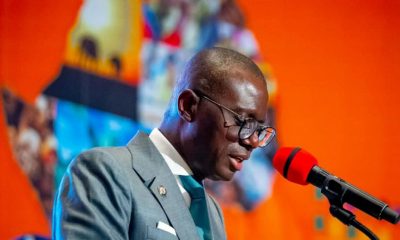
 News2 days ago
News2 days agoLagos GDP hits N41tn, earns N433bn from IGR
-

 Business2 days ago
Business2 days agoNaira depreciates again, trades at N1,402/$
-

 metro2 days ago
metro2 days agoWhy I killed my one-year-old son – Delta woman
-
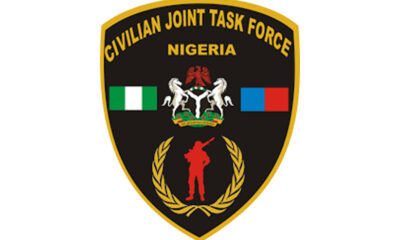
 metro3 days ago
metro3 days agoBandits kill nine civilian JTF members, kidnap three in Sokoto





